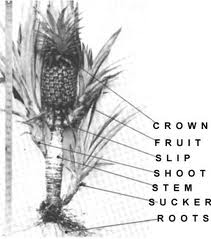Home » natural health »
Cardiovascular Herbs Part 1
Hawthorn
I call this herb ‘the wise man’s digitalis’ in tribute to the excellent medicine, derived from the foxglove plant, that cardiologists once used to strengthen the heart and reduce how rapidly it beats. To our great disservice, pharmaceutical companies extracted but a single one of foxglove’s constituents and created a different drug, digoxin, whose side effects include heart blockages and rhythm disturbances.
Hawthorn extract works just as well as digoxin and its predecessor with virtually no side effects or long-term risks. In my opinion, the herb (Crataegus oxyacantha) should be prescribed as a matter of course to every person with a cardiovascular problem. In many gende ways, hawthorn impressively addresses almost every major factor involved in heart disease. By keeping blood vessels relaxed, it reduces blood pressure and permits a freer flow of blood to the heart muscle. Better blood flow, in turn, increases the heart’s oxygen supply, allowing the muscle to pump more efficiently and with less strain. Additionally, through its influence on inflammation and allergic reactions, the herb brings some therapeutic relief from chest pains (angina), an unusually fast heartbeat (tachycardia), shortness of breath and hypertension.
The extract is quite potent. The usual dosage is 240—480 mg daily. If you need heart medication, use it only under a doctor’s guidance. Because it functions much the same way as heart medications, it may make the medications excessive, and the doctor will probably have to lower the dosages of some medications.
Coleus FORSKOHUI
Though few people may be familiar with Coleus forskohlii, I sense that this ayurvedic herb, thanks to the active compound
forskolin, is destined for a famous future. A flurry of research during the last several years has established that forskolin can
lower blood pressure, increase the heart’s strength and refieve congestive heart failure. The extract has been shown to benefit
asthmatics and may alleviate psoriasis as well. Some researchers see a role in weight loss, because forskolin stimulates the release of thyroid hormone and helps the body metabolize it. For cardiovascular purposes, take 50 mg of the extract two to four times a day.
Bromelain
While I often prescribe it to minimize blood clotting, bromelain gained its reputation from its widespread use in sports medicine and trauma treatment.
– An enzyme found in pineapple stems, it cool s inflammation and promotes healing in injured muscles and joints. The anti-inflammatory influence also comes into play in relieving discomfort from asthma, arthritis, colitis and inflammatory bowel disorders.
s inflammation and promotes healing in injured muscles and joints. The anti-inflammatory influence also comes into play in relieving discomfort from asthma, arthritis, colitis and inflammatory bowel disorders.
– Some European cardiologists use bromelain to reverse the symptoms of coronary heart disease. I have seen people benefit from it. It may do more for the heart than its known effect of keeping our blood platelets from sticking to each other, a process known to be involved in plaque formation.
Only high-quality supplements are capable of such therapeutic I effects. Look for a tablet or capsule rated at 2,000 GDU. A dosage of 600 mg per day seems to work well against inflammation. Take it on an empty stomach, or it will serve more as a digestive aid than as an anti-inflammatory.





0 Comments
You can be the first one to leave a comment.